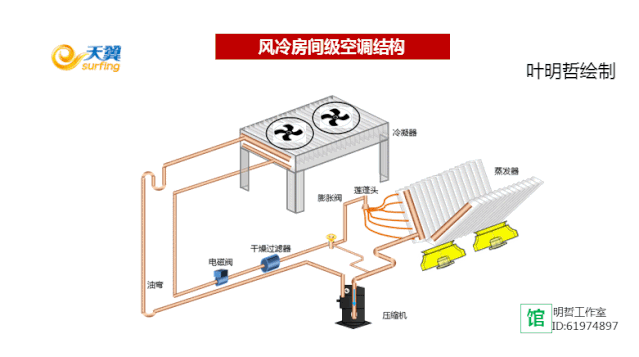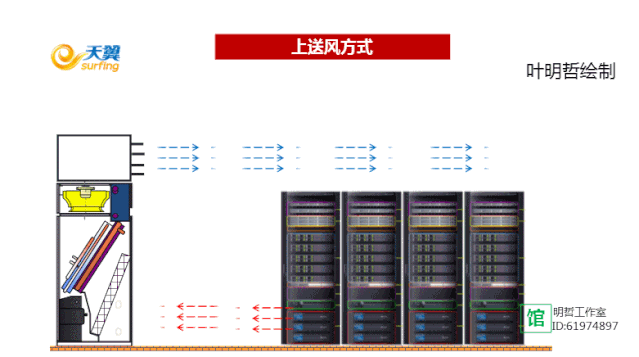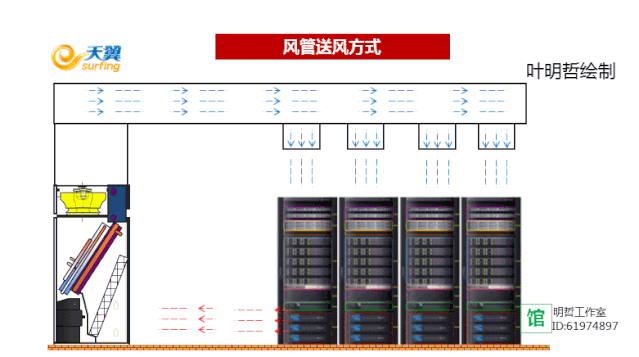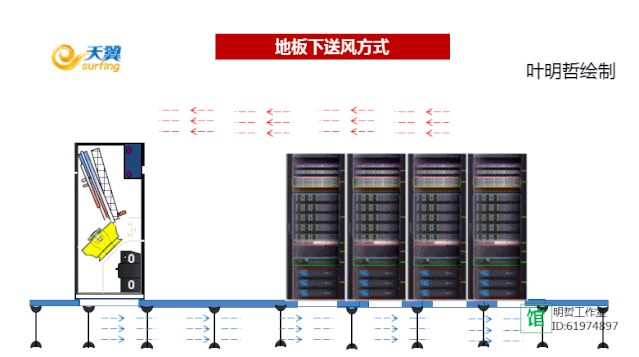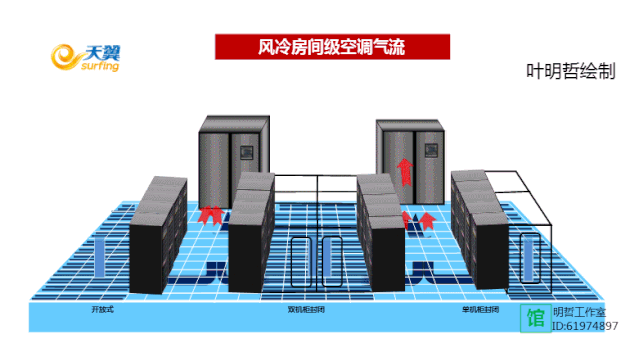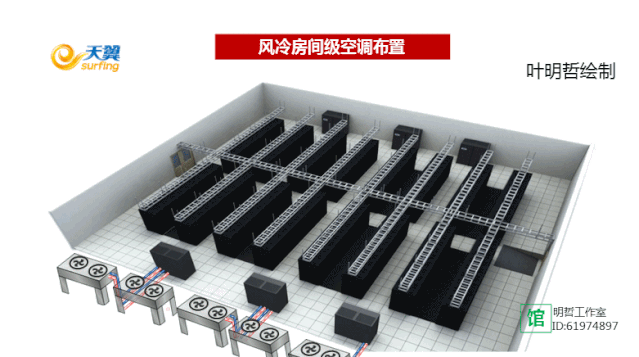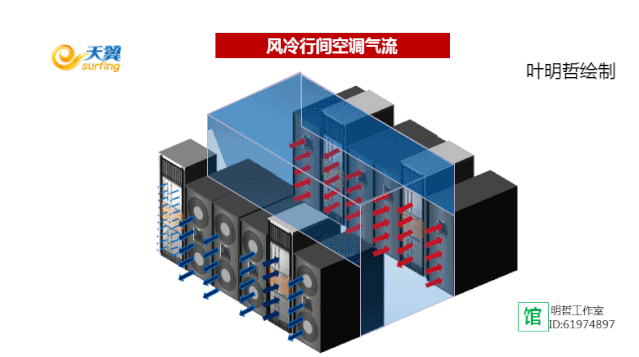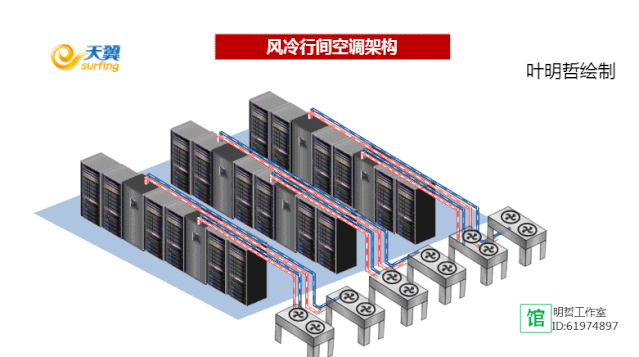There are two common ways to cool a data center: air-based cooling and liquid-based cooling. The secret to harnessing the cooling power of air lies in fans—lots of fans. It's very traditional, ancient, and it's a cheaper way of cooling. In this article you will see the structure of the air-cooled air conditioner, the way the air is supplied, and the airflow diagram.
air-based cooling for data center
The air conditioner is composed of an internal unit and an external unit connected through a fluorine pipeline. The internal unit is composed of a compressor, an expansion valve, and an evaporator, etc., which can achieve functions such as refrigeration and airflow transmission. The external unit is used for heat dissipation.
Figure 1:structure
1.2 Air distribution options:overhead air distribution systems, metal duct systems Underfloor Air Distribution Systems:
figure2: overhead air distribution
figure3 metal duct air distribution systems
Figure 4:Underfloor Air Distribution Systems
1.3 Underfloor Air Distribution Systems is more recommended in order to optimize the air flow and further enhance the cooling,check figure 5.
Figure 5 Room - level air conditioning airflow
Figure 6: Room-cooling for data center
1.4 Applicable scenarios:It's suitable for small and medium-sized data centers. When the air conveying distance is short, it can be arranged in one side; when the conveying distance is long, it can be arranged in both sides.
1.5 In addition to room-level air conditioners, there are also In-row air conditioning and cabinet-level air conditioners. These methods can reduce the air transmission distance and reduce the power consumption of the fans. Good cooling effect, Figure 7, if not closed, Figure 8.
Figure 7:Inter-row cooling + closed hot pool
Figure 8:Inrow cooling
In-row air conditioning system is a new cooling system in data center used to assist the cooling system to be more effective. The dimension of In-row rack is equal to server rack in order to replace the rack in the hot areas. Normally, raised floor cooling system usually cannot deal with the heat flux at the top of server rack. Therefore the In-row cooling system can be used to solve this problem. Fig. 6 shows the layout of the In-row air conditioning system. The facility houses the same as the raised floor air conditioning system except a change of the empty rack in raised floor to In-row air conditioning by using the same airflow.
Advantages and disadvantages:
Air cooling is popular and cheaper, but its faults are becoming more apparent. It's just not very good as a heat transfer medium. As data centre equipment has increased in density, the use of large fans has decreased because of a lack of space; so has the capability to move the large volumes of air required through the equipment. Being a gas, air has poor heat conductivity, so extra means are required to transfer the heat from its source into the air itself. Therefore, fins must be attached to hot spots to maximise the surface area available for heat transfer away from the equipment.
Water-Cooled and Air-Cooled Chillers have many similarities. However, it is more efficient and environmentally friendly because water transfers heat more efficiently than air. Next essay we will talk about the basic knowledge of water - cooled air - conditioner to you.


